Sustainable packaging has become an increasingly high priority for both consumers and brands in recent years. Packaging in all forms is a big contributor to a huge part of the throwaway materials that end up in landfills. Finding and using eco-friendly packaging alternatives is no longer just an option, it's a necessity.
We're all familiar with the terms reduce, reuse, and recycle but today, businesses of all sizes have to try to reflect these values. As millennials are followed by Gen Z, both groups are pushing brands to become more socially and environmentally aware and choosing to shop with companies that support this.
There's still quite a way to go in the war against plastic waste but material science and package engineering have taken great leaps at developing alternatives and good recycling practices. The real challenge getting businesses from all industries to use these materials - so we want to help. At Interparcel, we strongly support the use of recyclable packaging, so we want to share some sustainable packaging solutions so you can start to lighten your carbon footprint!
But first let's go over what packaging sustainability means.
What is sustainable packaging?
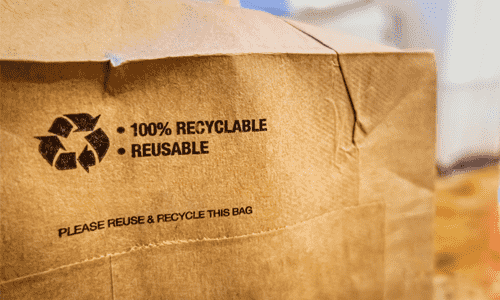
Sustainable packaging is packaging made from materials that, through its duration in use, reduces its environmental footprint.
It's able to do this because:
- The material's ingredients use 100% raw, recyclable or compostable materials
- The production process has been reduced. By condensing the supply chain, you minimise the carbon footprint
- Lengthening the materials lifecycle by making it reusable creates a circular economy and aids recycling
It's important to have done independent research when finding environmentally friendly packaging. As sometimes, just because a material is recyclable doesn't mean it's completely sustainable. So, often eco-friendly materials can be unsustainable, and sometimes sustainable packaging materials can be unethical - the definitions can get a little muddy.
What makes the difference in your business caring enough to make a change. Simply knowing and considering the options you have to take steps toward packaging sustainability is a good start. Keep reading to see what great solutions are out there to solve your sustainability problems!
What is the most sustainable material to use?
Bio-Based Plastics
Pros - Bio-based plastics are biologicially produced plastics aka plastics made from biological sources like vegetable fats and oils or corn starch. This can be good solution for your business to combat the problems artificially created materials that don't biodegrade pose for our environment. Bioplastics are typically made from food crops like sugarcane and use them in their production process.
This material reduces non-biodegradable waste and does not involve the consumption of non-renewable raw materials in the process of making. Bioplastics are often sold at affordable rates and are expected to cover 10% of the European plastics market in the next 10 years.
Cons- Bio-based plastics have been in demand in recent years, with some studies reporting significant diversions from the human food chain causing shortages in food production output and price increases. Whilst there is already demands to grow more food crops to meet our growing population, using crops to create bioplastics is unsustainable.
Other impacts of plant-based materials are deforestation for farming, greenhouse gas emissions related to agriculture (fuel, machinery, etc). As well as potential pesticide use having an impact on the environment too.
More unconventional plant-based packaging
Mushroom packaging
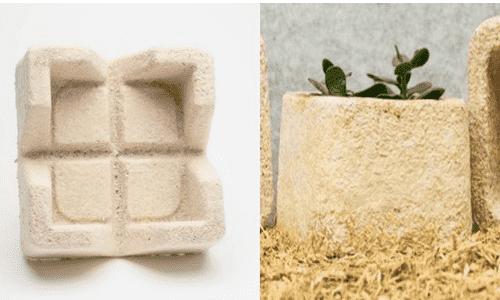
Pros - Mushroom packaging is a very affordable and eco-friendly alternative to mainstream packaging solutions. It uses cleaned agricultural waste which is fused with mushroom roots. As it uses waste in its production, it avoids the controversy that bio-based plastics face by being recyclable. The materials allow it to be moulded into many shapes and it biodegrades very quickly - you can even compost it at home.
Cons - This material may be a little hard to come by so it would necessitate buying in bulk from online stores that specialise in this type of packaging. MushroomPackaging.com is one of these businesses that sell custom made packaging from mushroom roots and ship internationally to fulfil all sustainability needs!
Seaweed packaging
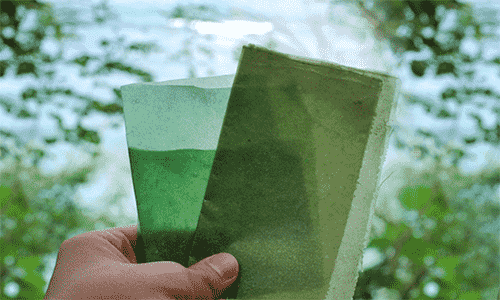
Pros - A team of designers in recent years thought up this new means of sustainable packaging material. Seaweed being a plentiful and very eco-friendly raw material, this offers a way to produce zero-waste. This packaging innovation is set to be a big up and comer to replace single-serve packaging materials.
Cons - This type of sustainable packaging innovation has relatively low downsides, apart from it perhaps being a little less readily available. SeaweedPackaging.com ships internationally and stock seaweed-based products that won't break the bank and will reduce post-consumer packaging waste causing environmental issues.
Corrugated cardboard/paper-based packaging
Pros - Cardboard and paper packaging is rightly amongst the most environmentally friendly packaging innovations. It is biodegradable if its post-consumer life is in a landfill and it can also be easily recycled. Cardboard packaging is often key to building a sustainable brand as well as customer perception. This raw material can be engineered to create packaging of exceptional strength to meet the needs of lots of businesses.
Cons - The only con for this material is that it often cannot hold liquids, food products, or oily materials. Or when the material is just too fragile to support the weight of the product alone. This will often result in end-of-life transport to a landfill instead of contributing to recycling efforts.
Besides this though, the cons can be seen as pros too. This weaker recycled content can be downcycled instead of recycled. This means the virgin fibres (paper straight from trees) will be added to the existing material to make it stronger. This is a zero-waste option that lengthens the lifecycle of the material - so a genuinely sustainable packaging innovation for your business.
How can packaging be more sustainable?
Packaging can increase its sustainability without making huge changes. In most cases your packaging just needs rethinking slightly with its environmental impact in mind.
Using multi-use eco-friendly packaging is one of these ways. Typically, the packaging doesn't long serve more than one consumer use past its original purpose and most of the time doesn't end up participating in recycling practices. Rethinking your packaging so that it has multiple uses can increase the lifespan of the material and decrease the likelihood that it'll end up in a landfill. This is also the cheapest way to begin making your packaging more environmentally friendly. Plus, by putting more thought into your packaging ideas and branding you can create a unique, original unboxing experience that customers appreciate and continue to buy.
Recyclable Packaging
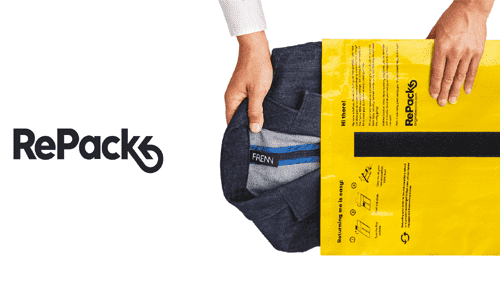
Repack
This packaging retailer specialises in envelopes that can be sent back after delivery. Once the goods have reached their destination the packaging can be sent back and reused to lengthen its lifecycle. This is only good for sending soft items so limiting the range of items it can be used for, but it's still a great innovation in multi-use packaging.
Coca-Cola
Coke has been leading the way for other big companies to change their ways and become more sustainably minded. They introduced a means to turn their cardboard can packaging into VR Viewers which customers can place their phone into. They added instructions on removable sections so it can be easily assembled, how fun!
Another way to make your packaging more sustainable without changing much is by employing a less is more strategy. It's pointless putting lots of effort into sourcing sustainable materials if you put no effort into the design of the packaging. So, cutting down on unnecessary parts of your packaging design will save you time and money.
Biodegradable Packaging
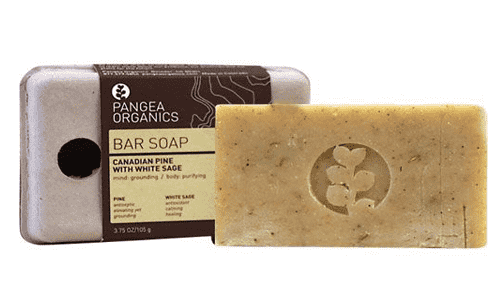
Pangea Organics Bar Soap
Their product embodies sustainability as using a bar of soap itself is a far more environmentally friendly means of washing. Plus, their packaging stays true to their sustainable mindset by removing the need for plastic single-use bottles.
Their packaging has made them even more conscientious as their fibre-based packaging is made from recycled newspaper moulded with water to make boxes! After these have served their initial purpose, they then turn into tree planters as seeds have been added to the mould while constructing. A very simple and affordable way to be more sustainable.
HP Chromebook 11
This is a great example of minimal packaging built for sustainability. The packaging reflects the style of the product. The case is sleek, modern, and easy to get into. Plus, it's made from compostable pulp which is a great eco-friendly packaging material to consider.
One more way your packaging can be more sustainable is simply by being innovative and pushing the boundaries of materials that can be used for packaging. As we've already covered seaweed and mushroom products have become the frontrunners in biodegradable packaging innovation. Advancements in technology and research have allowed sustainable packaging alternatives to become a reality, changing the way we perceive standard packaging.
Eco Packaging
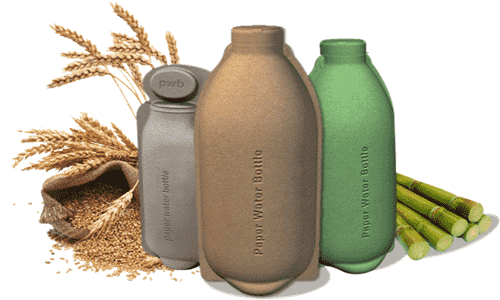
Paper Water Bottle
This company has created an alternative to single-use plastic bottles. Plastic bottles are responsible for 8 million tonnes of pollution that end up clogging our oceans and harming marine life. With plastic bottles taking up to 1000 years to biodegrade, companies like the Paper Water Bottle have used modern innovation to produce a life-saving alternative.
Doggy Poo Bags by Olive
We all know that dogs need to go a lot - while approximately 20% to 30% of waterway pollutants come from canine waste. Olive is a company that has thought up an alternative to doggy bags that are made from non-biodegradable plastic, taking thousands of years to break down. So as all responsible pet owners should picking up after their dogs (!), Olive has come up with 100% biodegradable bags that are made from GMO-free corn starch and vegetable oil. Pet owners can now rest easy with this sustainable alternative as these bags take a little as 40 days to degrade!
Making a sustainable packaging choice
By taking time to think about your packaging sustainability and how you can take small steps to improve the environmental impact it has, you're making the first steps. Small businesses will be concerned about the cost that these changes make incur. But by making small adjustments like rather than using packing peanuts that can be costly and bad for the environment, why not use popcorn which can biodegrade! Or even swap out brand stickers or leaflets and try using potato stamps alongside natural dyes to brand your product packaging.
Or why not use your shredder to combine clearing our your filing system with a useful way to protect products in transit. There's lots of ways to reuse old packaging and many ways you can reduce your carbon-footprint in the process. But by conducting a little research into what sustainable material is best for your company you'll know whether you'll have to increase prices slightly.
Cutting costs is a must if you're going to spend a little more on packaging materials and that's where choosing the right shipping services comes in. Our discounted shipping solutions can save you money and time. Our shipping manager draws all of your order info into one place and making it simple to run a smart, eco-aware business. Integrating with the likes of Shopify and WooCommerce our shipping integrations allow you to place regular orders with trusted and reliable courier services hassle-free.
Our partnership with DPD Local gives our customers access to a carbon-neutral delivery service, so you can go that extra mile (or they can) to give your customers peace of mind, knowing that their favourite businesses are eco-conscious!
Why is sustainable packaging important?
Sustainability is important because it shows your brand's commitment to caring for our environment. Fighting climate change puts us all on the front line so approaching and applying actions to combat it through small businesses is very important. It also shows the thought and cares you have put into your brand and your company's commitment to providing customers with quality products.
There are lots of opportunities to start being more sustainable with your packaging. Whether it's creating packaging with more than one use, rethinking traditional materials, or going for a minimalistic approach, you're paving the way to a more sustainable future for everyone.




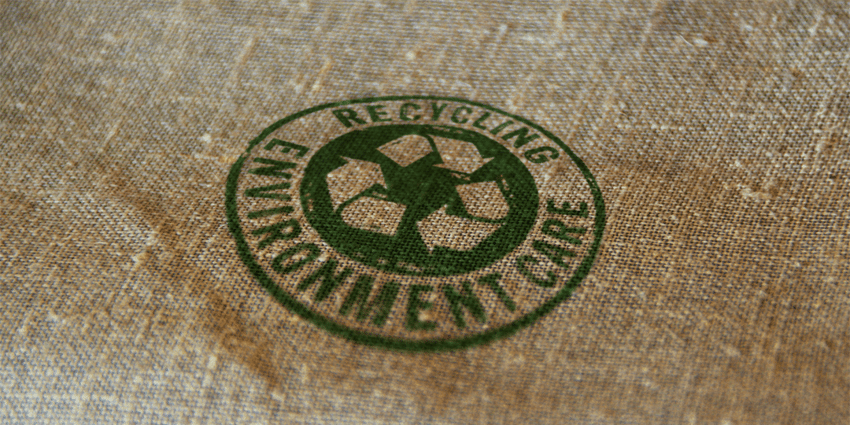



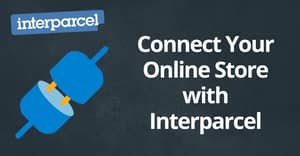

 Facebook
Facebook Twitter
Twitter Instagram
Instagram Linked In
Linked In YouTube
YouTube